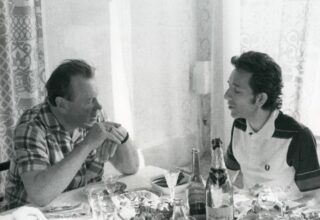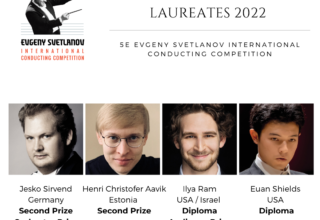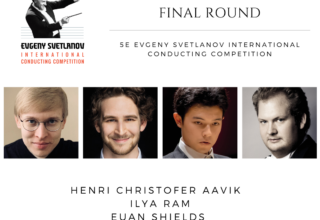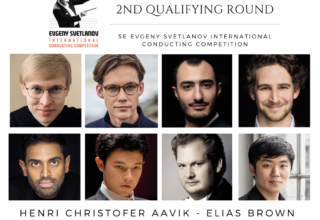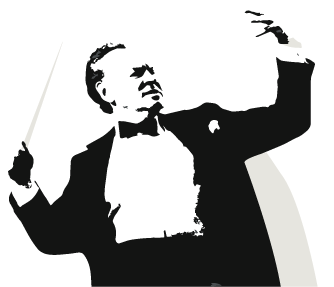René Koering, Musical Director of Radio France, remembers Evgeny Svetlanov
(Interview published with the CD “A Tribute to Evgeny Svetlanov”, Debussy and Scriabin, Naïve V4946)
What role did Svetlanov play, not just in Russia, but in the world? How is he perceived today?
Svetlanov’s place was finally revealed to the non-Soviet world. Svetlanov’s discovery of the world and the world’s discovery of Svetlanov inevitably produced several crises. A man’s destiny cannot be governed by bureaucratic rules. The artist, especially a great artist such as Svetlanov, cannot obey the rules of those of who act exclusively on the basis of self-interest.
Was France his second home?
The previous answer also applies to this question. For Russians, France is often considered a second home, but I won’t go into the past ties between the two cultures (since Peter the Great). I am sure that Svetlanov was happy in France, and the French were captivated by Svetlanov, the kind of musical giant that fascinates the French. Svetlanov brought with him the utter genius of his country, and, in my opinion, nothing inspires love in the French more.
Your friendship…
Svetlanov and I became friends immediately. I expressed my deep admiration for the way he “read” music and we immediately established a rapport. Each time I asked him a question, it took him between thirty and fifty seconds to answer. That’s a long time, you know, and certainly unusual. But I understand him since I often do the same thing when talking about important things.
Svetlanov was a person who took things seriously, and I think it made him angry when people did not understand that music touched the most “serious” areas of the soul. His calm and his piercing eyes showed that, in addition to fishing, the passion he shared with Nina, which I also enjoy very much myself, we could talk uninhibitedly about the most important topics, including music of course.
As a musician, he possessed what I believe to be the most important quality, the belief that our art could save the world and that those who did not believe so were Philistines.
What is your view of his recording of the Russian anthology?
The recording of the Russian anthology, including all of Miaskovsky’s works, is the ultimate tribute to this major artistic movement. The interpretations that will follow will either be imitations or simply different and therefore not part of the Russian heritage. Miaskovsky is
one of those composers whose work is a boundless expanse of sensations and meditation. He was overshadowed by another musical movement, that of Shostakovich, whose music was undoubtedly easier for the audience. The public embraced his music immediately. This happens in every period in history, but it doesn’t detract from the marvellous gift that Miaskovsky gave to Russian music.
What are your recollections of the last concerts?
My last recollections are of Christus by Liszt with the Orchestre National de France in Paris and Madame Butterfly at the Opéra National de Montpellier.
The first was a surprise because I didn’t think Svetlanov was conducting this masterpiece as if to open the gates to eternity. I know this piece well and its hidden difficulties. Svetlanov approached this piece with the austerity of a monk, keeping the tempos very slow, which I think surprised both the singers and the musicians. However, one’s own transfiguration should not be done in haste. I believe that he took the time to suffer, to seek the truth in this tremendous glorification of Christ. I believe that, from the outset, he knew where this music would take him; in other words, much further than he had first thought, so far that he never returned. You could see it in his clear, mocking smile, and in the deep meditation that often led him to bring the most profound issues.
With Madame Butterfly, he wanted to conduct it one last time, and for the last time, he wished to recollect his mother. I think we all do that. He had played the part of the little boy in Madame Butterfly, a role that his mother sang so often that he wanted to join her through this music into which he was born. I was very worried the last time I had dinner with him. He was so happy and funny, and so was Nina! We talked about fishing and a little about music… I had no idea I would never see him again.
Tell us about Svetlanov’s eternal thirst for discovery…
I was delighted that someone of his stature should ask me to look at this unknown music.
What a joy! I often see mediocre conductors who only want to perform the great masterpieces, so it was a pure enchantment to see this giant studying pieces that everyone had forgotten, reviving them with such talent and joy!
